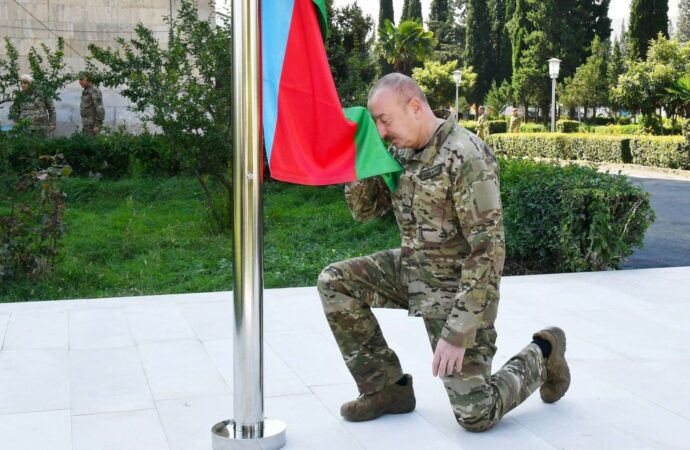The recent events in Nagorno-Karabakh highlight the environmental impact of conflicts and the displacement of populations.
H2 Environmental Consequences of the Nagorno-Karabakh Conflict
Destruction of natural habitats and wildlife due to the conflict
The recent military offensive in Nagorno-Karabakh has not only led to the displacement of the ethnic Armenian population but has also resulted in significant environmental consequences. The destruction caused by the conflict has had a severe impact on natural habitats and wildlife in the region.
The fighting and subsequent occupation of the territory have resulted in the destruction of forests, wetlands, and other natural ecosystems. These habitats are home to a diverse range of plant and animal species, some of which are endangered or endemic to the region. The loss of these habitats not only threatens the survival of these species but also disrupts the delicate balance of the local ecosystem.
Moreover, the use of heavy weaponry and explosives during the conflict has caused extensive damage to the environment. Explosions and shelling have resulted in soil erosion, contamination of water sources, and air pollution. The long-term effects of these environmental damages can be far-reaching and have implications for the health and well-being of the local population.
The displacement of the ethnic Armenian population has also led to the abandonment of agricultural lands and livestock. This not only affects the livelihoods of the displaced individuals but also has consequences for food security and the local economy. The loss of agricultural practices and traditional knowledge related to sustainable farming practices further exacerbates the environmental impact of the conflict.
It is crucial that the international community recognizes the environmental consequences of conflicts and takes steps to mitigate these impacts. Efforts should be made to restore and rehabilitate the damaged ecosystems, support sustainable livelihoods for the displaced populations, and promote peacebuilding initiatives that prioritize environmental protection.
By addressing the environmental consequences of conflicts, we can contribute to the long-term stability and sustainability of the affected regions. It is essential that we prioritize the protection of the environment and work towards peaceful resolutions that take into account the well-being of both people and the planet.
In conclusion, the recent events in Nagorno-Karabakh highlight the need to consider the environmental impact of conflicts. The destruction of natural habitats and wildlife, as well as the displacement of populations, have severe consequences for the region’s ecosystems and the well-being of its people. It is imperative that we prioritize environmental protection and work towards sustainable solutions that promote peace and stability.









